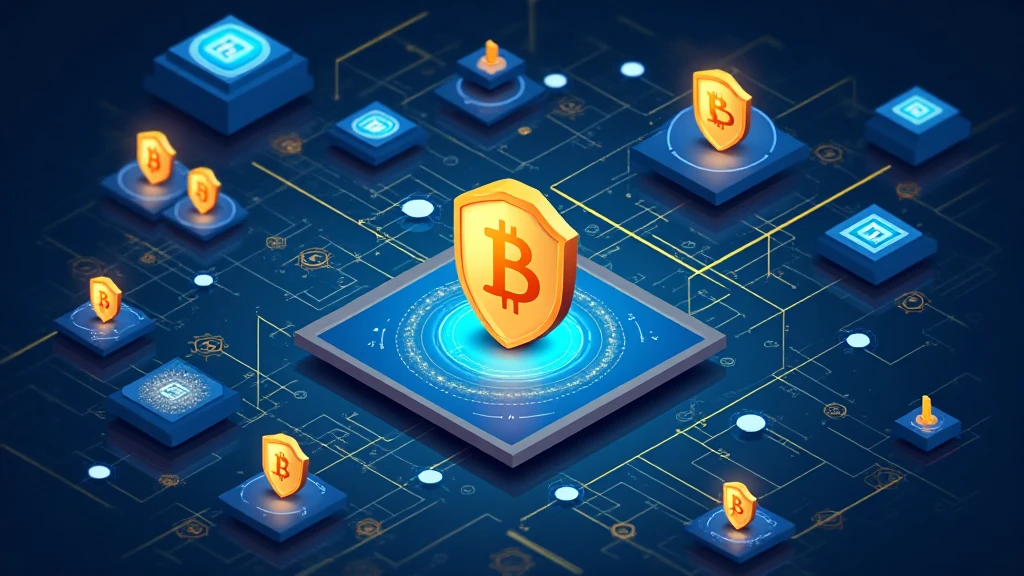Introduction
With a staggering $4.1 billion lost to DeFi hacks in 2024, the need for stringent security protocols has never been more apparent. The explosive growth of decentralized finance (DeFi) has attracted users to the hedge against inflation and economic collapse, but with this growth comes significant risks. Ensuring that Bitcoin DeFi protocols are secure through thorough audits is paramount for safeguarding your digital assets.
This article aims to explore the essential practices surrounding Bitcoin DeFi protocol audits, stressing the importance of security standards, especially in the rapidly evolving crypto landscape.
Understanding the Basics of DeFi Protocols
Decentralized Finance, or DeFi, represents a paradigm shift from traditional financial systems, where smart contracts on the blockchain replace intermediaries like banks. Imagine a world where your funds aren’t held by a bank but are controlled by code, accessible only through your personal wallet. However, just like a bank vault, these smart contracts must be audited to ensure their integrity.

What is a DeFi Protocol Audit?
A DeFi protocol audit involves a thorough examination of the smart contracts that govern decentralized applications. Auditors look for vulnerabilities, inefficiencies, and overall security flaws. This process is akin to a health check-up, identifying potential risks before they can be exploited by malicious actors.
Importance of Audits in Ensuring Security
Auditing is critical as it not only helps in pinpointing vulnerabilities but also builds trust among users. Without trust, users may hesitate to engage with DeFi applications. A well-conducted audit can enhance a protocol’s credibility.
Consensus Mechanism Vulnerabilities
One of the most common areas of concern in DeFi protocols is consensus mechanism vulnerabilities. For example, an attacker might exploit a bug in the consensus algorithm to manipulate transactions, undermining the entire system’s integrity. This scenario is similar to how a bank robber could access a vault if the security measures are not robust.
Real-World Impact: Case Studies
- **The bZx Hack:** In February 2020, the bZx protocol suffered a $1 million loss due to a vulnerability exploited through flash loans.
- **The Poly Network Hack:** In August 2021, a hacker exploited a bug in Poly Network, allowing for a theft of $610 million, although most of it was later returned.
These cases illustrate the dire consequences of inadequate audits and the inherent risks faced by users in the crypto space. According to hibt.com, security audits can reduce vulnerabilities by up to 70%, significantly enhancing the security of smart contracts.
The Audit Process: A Step-by-Step Guide
Below is a simplified overview of the audit process:
- Scoping the Audit: Define which components of the protocol will be audited.
- Code Review: Review the smart contracts to identify any potential risks.
- Testing: Conduct various tests, including unit tests and fuzz testing, to explore the limits of the code.
- Report Findings: Draft a comprehensive report detailing any vulnerabilities found and recommendations for remediation.
- Verification: After fixes are implemented, a follow-up audit is essential to ensure the issues have been resolved.
For stakeholders, understanding this process can help them ask the right questions when choosing which protocols to trust.
Adapting to the Vietnamese Market
In Vietnam, the blockchain space is witnessing rapid growth, with the user base expanding at an incredible rate. As of 2023, the growth rate of Vietnam’s cryptocurrency users is estimated at 150%, reflecting an enormous opportunity for DeFi protocols to establish their presence in the market.
Given this rapid expansion, it is crucial for Vietnamese users to understand the importance of meticulous auditing for DeFi protocols. The Vietnamese phrase “tiêu chuẩn an ninh blockchain” directly translates to “blockchain security standards”, which highlights the importance of maintaining robust security measures in this evolving landscape.
Long-Tail Keywords: Enhancing Security Knowledge
Understanding how to audit smart contracts and recognizing the potential of cryptocurrencies by exploring the most promising altcoins in 2025 can help users navigate the complexities of the DeFi space more effectively. Being informed can aid in making educated investment decisions.
Resources for Further Learning
Several resources can aid in enhancing your knowledge of crypto audits:
- Online courses focusing on blockchain security.
- Industry reports from Chainalysis and similar organizations.
- Community forums discussing recent security trends.
By leveraging these resources, users can gain a more profound understanding of the principles that govern security in the DeFi world.
Conclusion
Bitcoin DeFi protocol audits are not just a back-office process; they are integral to the trust and safety of digital finance. As the DeFi space continues to grow, understanding and implementing efficient auditing processes will be key to protecting assets.
With significant losses recorded in recent years, the importance of conducting thorough audits cannot be overstated. Whether you’re an investor or a developer, being committed to security will ultimately safeguard the future of financial transactions.
At btctokenio, we prioritize the security of our users by adhering to the best auditing practices within the DeFi ecosystem. Our goal is to empower individuals with the knowledge they need to navigate this complex environment safely.
Author: Dr. Alice Nguyet – Blockchain Security Expert with over 25 published papers and leading audits for prominent projects.





